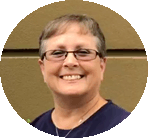MESSAGE FROM THE PRESIDENT
If there was ever any question about racism in the Seventh-day Ad ventist church, one only has to look at the most recent Visitor, the magazine for Seventh-day Adventists in my union. The cover story is about Lucy Byard, a Black woman who converted to Adventism at the age of 25 in 1902. She was one of only five Black women who pioneered the Adventist work in New York City. As an avid musician and cook, she entertained many great African-American Adventist pioneers, according to Dr. Benjamin Baker.
ventist church, one only has to look at the most recent Visitor, the magazine for Seventh-day Adventists in my union. The cover story is about Lucy Byard, a Black woman who converted to Adventism at the age of 25 in 1902. She was one of only five Black women who pioneered the Adventist work in New York City. As an avid musician and cook, she entertained many great African-American Adventist pioneers, according to Dr. Benjamin Baker.
But in her mid-60s, Byard developed liver cancer. As she and her husband James considered which hospital to admit her to, they decided to go to the Washington Sanitarium in Takoma Park, Maryland, and they were approved ahead of time. When they arrived, though, they were turned away because they were Black. Before this, the hospital had allowed a few Black patients to be admitted, but only if they could be treated in the hospital basement by off-duty staff. The Byards were then sent to the Freedman’s Hospital, now Howard University Hospital, which served Black people. The hospital later said they didn’t realize the Byards were Black when they agreed to accept them.
Lucy Byard died 38 days later. Her death triggered a wave of activism among Black Adventists, who the church had sidelined for decades. Byard’s congregation in Long Island, New York, threatened to sue the church, and the Committee for the Advancement of Worldwide Work among Colored Seventh-day Adventists, which advocated for equal rights in the church, was formed.
After many meetings and discussions between Black leaders and General Conference officers, regional conferences were established to serve Black church members.
The LGBTIQA community is another group the church has sidelined. Back in the early days of the HIV crisis in the U.S., the church consistently turned its back on infected and affected members. It wasn’t just that the church didn’t allow funerals for people with AIDS, but also that most pastors refused to even visit members with HIV or AIDS. This is one of the areas where Kinship stepped up to care for our own.
Today, with the development of the new compliance committees, the church is saying once again that it will do whatever it can to make sure we know we don’t count and don’t belong.
But I know for sure that we do count, we are enough, and regardless of what the church says or does about and to us, Kinship will always step up for our members.
We must push back against the horrible things the church leadership continues to throw at us. We must stand against all forms of social inequality with regards to race, gender, age, ability/disability, sexual orientation, nationality, and religion. This starts with each of us. I won’t ask for one thing more from the Adventist church than I ask from myself or our community.
Yolanda Elliott
President
SDA Kinship International
